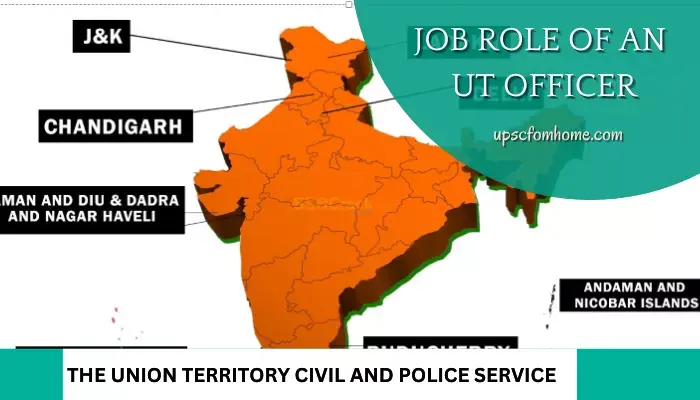Role of an IAS Officer - UPSC
- Muskan Celeste

- Jan 1, 2022
- 5 min read

Did you know that the term "Imperial Civil Service" refers to the Indian Administrative Service? I figured you should be aware of this. If you are an astute individual in India, you may want to consider joining the Indian Administrative Service (IAS). Regardless of where you are in the country, you can use this service. The permanent bureaucracy of the Indian government is run by the Indian Administrative Service (IAS). The Indian Administrative Service and related services are responsible for carrying out the elected government's executive decisions. If you want to work as an IAS official, you must pass the UPSC civil services exam first. It is not insurmountable, as tricky as this challenge for India. Candidates who fail any one of the exam's three phases will not be considered for any of the following positions in government: The preliminary test consists of two multiple-choice questions, while the main examination consists of nine theory papers and an interview called the Personality Questionnaire.
Responsibilities of an IAS officer
The responsibilities of an IAS officer vary according to the level of management. Here are the duties of the IAS officer as per the level of control.
IAS officers are initially assigned to sub-divisional magistrates. Within their authority, they are in charge of ensuring peace and order and general administrative and development activities.
District Magistrate, Collector, or Deputy Commissioner are all positions held by IAS officers. The responsibilities and powers of the district IAS officer have not been altered.
They are responsible for overseeing the administrative operations of the district as well as implementing and supervising development projects under their authority.
IAS officers are promoted from district magistrate to state administrator at the state level. They might serve as a bureaucrat or department heads for the state secretariat.
They provide policy advice to elected officials during this period based on their field experience. Many IAS officers work at government-owned PSUs in high administrative positions. Most of the Big PSUs are currently led by IAS officers.
The most prominent positions for IAS officials are with the federal government. Cabinet Secretaries, Additional Secretaries, Joint Secretaries, Directors, Deputy Secretaries, and Under Secretaries are all examples of central government officers. In numerous ministries, including finance, military, and commerce, an IAS officer's primary responsibility is to develop and oversee the implementation of government policies.
Salary and Benefits of an IAS officer
The IAS Officer Salary in India is not the same as the salary scale in Indian government services. Grade pay, discretionary allowance, and other benefits are added on top of the base salary. Based on priority, the IAS is given higher pay ratings. Following are the compensation grades and perks for IAS officers: junior scale, senior time scale, junior administrative grade, selection grade, super time scale, above tremendous time scale, apex scale, and cabinet secretary grade, which ranges from 50,000 to 2,50,000 Indian Rupees in the same order.
Perks of an IAS officer
Home for Indian Administrative Service officers is located in the state capital's (VVIP) restricted area, reserved for the most senior officials. Additionally that, they are eligible for this benefit no matter where in the world their assignments take them! In addition to the state capital, IAS officers have a service quarter to perform their duties (respective district headquarters).
An official car with a chauffeur is provided to the IAS officials on an as-needed basis. Blue beacons will be installed on all vehicles. The automobiles of Chief Secretary officials are marked with red beacons. Additionally, the government pays for the IAS officials' autos to be maintained and gassed up.
IAS personnel and their families are protected with the utmost care. For state leaders, three home guards and two bodyguards are usual. Commandos from the Special Task Force (STF) may be summoned if necessary. District Magistrate/Commissioners from the Indian Administrative Service (IAS) can utilize the police force as they see fit.
Private-sector workers must pay for their standard household services, while IAS personnel are exempt. Power is either free or heavily subsidized at their official residence. Three BSNL SIM cards are also provided with free Talk time, SMS, and internet. BSNL internet and telephone services are offered at no charge to BSNL customers at home.
Circuit homes, government bungalows, and rest houses around the nation provide free housing for IAS officials. They are housed in the state Bhavan whenever an IAS officer visits New Delhi. IAS officers are provided with personal assistants to assist them in their daily work.
IAS employees are also entitled to 2-4 years of study leave. The government does not have to foot the bill for IAS personnel to study abroad for up to four years. In addition, IAS officials are often requested to attend significant events in their districts or regions. In addition to free tickets to athletic events, concerts, and parties, this also offers freebies. Unless accompanied by a VVIP, attending these events may be infeasible.
Power of an IAS officer
Here are the strengths of IAS officers:
Governing and the management of infrastructure
Government policies should be developed, implemented, and overseen.
To be the first person on the scene in an emergency (natural or artificial).
The funds needed to execute and maintain government programs and infrastructure.
The purpose of this is to verify that there are no financial irregularities.
Challenges of an IAS officer
Political involvement is a significant challenge for IAS officers. The regional IAS officer collaborates with the MP and MLA in the region. Progress, welfare, well-being, and peace in their separate societies must be the primary goals of both. Due to their differences, IAS officials and politicians are at odds daily. Political disagreements, corruption, misuse of public authority, and the support of criminals and lawbreakers by MPs and MLAs are the fundamental causes for the breakdown of trust between the parties.
Excellence is not rewarded is another challenge for IAS officers. According to Aristotle, practice is the key to mastery. You do not have to be acknowledged and commended for all of your hard work. In the civil service, nothing can be accomplished without the cooperation and support of the public. Punishment and disgrace are reserved for courageous and honourable police officers.
Frustration is yet another challenge faced by IAS officers. People management is both the most difficult and the most rewarding science. Constant communication with politicians, authorities and the general public is essential for Civil Service work. In the face of several threats and an ever-changing environment, IAS officials are the most anxious and stressed. If you cannot control the outside world, you will feel the effects of stress much more quickly.
Friendly Conclusion
India's Permanent bureaucracy is run by the Indian Administrative Service (IAS). IAS officers are responsible for carrying out the elected government's executive decisions. They are promoted from sub-divisional magistrate to state administrator at the state level. The most prominent positions for IAS officials are with the federal government. The IAS Officer Salary in India is not the same as the salary scale in Indian government services. Grade pay, discretionary allowance, and other benefits are added on top of the base salary. Based on priority, the IAS is given higher pay ratings. The role of a regional IAS officer is to be the first person on the scene in the event of an emergency. People management is both the most difficult and the most rewarding science. In the civil service, nothing can be accomplished without the cooperation and support of the public.









Comments